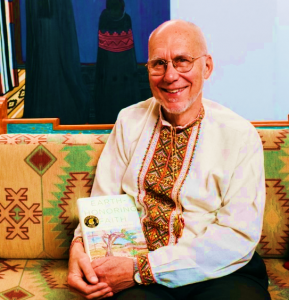COVENANTS & CREEDS
“The heart, after all, is raised on a mess of stories. Then it writes its own.” Joe Wood
 Sometimes the heart is compelled to write new stories. Ours is such a time, a gateway in time when one age and climate gives way to the next amidst the beauty and terror of death and opportunity, a time when faith must venture where it may not have ventured before, to cross rivers it may never have encountered. Asked of us is something new: religion’s ecological phase in its anthropocene moment.
Sometimes the heart is compelled to write new stories. Ours is such a time, a gateway in time when one age and climate gives way to the next amidst the beauty and terror of death and opportunity, a time when faith must venture where it may not have ventured before, to cross rivers it may never have encountered. Asked of us is something new: religion’s ecological phase in its anthropocene moment.
Why “religion’s ecological phase”? Isn’t “stewardship” enough? Why another covenant or creed?
While creeds are not identical with covenants, the notion of covenant is a helpful backstory.
In the Hebrew Bible, the Christian Old Testament, the Koran, as well as the scriptures of other religions, creation is a seamless web and justice and peace are the markers of the fullest possible flourishing of all creation. Moreover, God is always making and renewing covenants, as turning times and great events require. Especially noteworthy for Jews and Christians is that the “first and everlasting covenant” is God’s covenant with Earth (Gen. 9), with creation as we know it.
The Hebrew Bible covenants all share this. In different ways, they are about “the system of bonds which established and maintained the creation, ordering and binding the forces of chaos.”[1] Transgressing covenant bonds risks returning the planet, in small part or large, to the “waste and void” of pre-creation, while keeping covenant promises the original affluence of Eden and the joys of paradise. The fullness of ongoing life, on many levels, is at issue.
This sense of covenant as an encompassing framework sets the stage for considering a creed attuned to religion’s ecological phase in its anthropocene moment.
What is that moment? Religion’s ecological phase arises because our way of life has neglected a fundamental truth of creation: planetary health is primary, human well-being is derivative (Th. Berry). The industrial paradigm and fossil fuels let us live with the illusion that we could somehow bypass nature’s own requirements for its own regeneration and renewal on its own leisurely and non-negotiable timelines. The consequences of creating the built environment at the expense of the unbuilt one is an unsustainable level of global extraction and consumption together with the onset of systemic climate change. These consequences are the biggest things to happen to Earth in tens of thousands of years.
What all this will mean we do not know and cannot know, except this. We have assured planetary uncertainty for present and future generations of human and other life. The imperative that follows is another long look at ourselves and another long look at our way of life. This includes asking anew about the stories we tell and the faith we proclaim.
People live by the stories they tell of themselves. What stories should they be now? In keeping with what values and commitments
[1] Margaret Barker, The Great High Priest: The Temple Roots of Christian Liturgy, p. 45, as cited by Michael S. Northcott in A Moral Climate: the effects of global warming (Orbis Books, 2007), p. 238.
